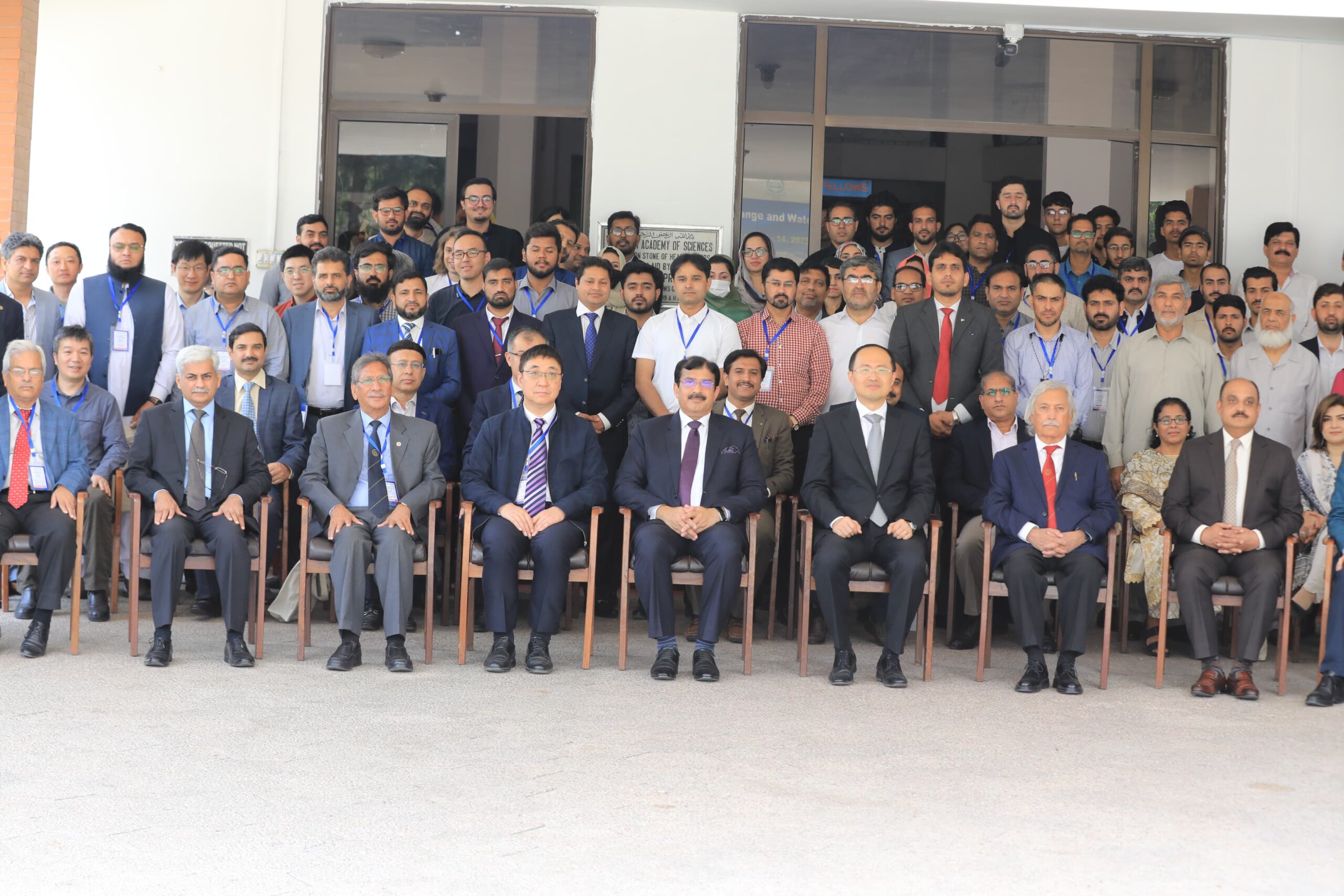WNAM REPORT: The International Training Workshop on Climate Change and Water Safety Effects along the China-Pakistan Economic Corridor (CPEC) was inaugurated at the Pakistan Academy of Sciences, Islamabad. The event was jointly opened by Dr. Zia Ul-Qayyum, Executive Director of the Higher Education Commission (HEC), Pakistan, and Mr. Xu Hangtian, Minister Counselor at the Embassy of China in Pakistan.
Organized by the China-Pakistan Joint Research Center on Earth Sciences (CPJRC) and the Pakistan Academy of Sciences (PAS), with sponsorship from the Alliance of National and International Science Organizations (ANSO), the workshop brings together leading experts, academicians, and policymakers from across the region to address the pressing challenges of climate change and water security along the CPEC corridor.
Dignitaries from the Chinese Academy of Sciences (CAS), including Dr. Kang Shichang, Director General of the Institute of Mountain Hazards and Environment, and Dr. Su Lijun, Director General of the CPJRC at Quaid-i-Azam University (QAU), Islamabad, attended the inaugural session. Senior Pakistani academics such as Prof. Dr. Muhammad Aslam Baig, Secretary General of PAS, and Prof. Dr. Mumtaz Shah of QAU also spoke at the event. Representatives from key national organizations—including the Pakistan Science Foundation, Global Climate Change Impact Study Centre, National Disaster Management Authority, PMAS Arid Agriculture University, and Pakistan Meteorological Department—were also in attendance.
The five-day workshop, being held from April 10–14, 2025, has attracted over 120 participants from various academic and research institutions across Pakistan and 20 international delegates from countries within the Hindu Kush Himalaya region, including China, Nepal, Sri Lanka, Bangladesh, and Afghanistan.
In their opening remarks, Dr. Zia Ul-Qayyum and Mr. Xu Hangtian emphasized the significance of Sino-Pakistani cooperation in promoting academic, scientific, and socioeconomic progress. They highlighted the growing challenges posed by climate change—especially its impact on cryosphere systems, water resources, disaster risk reduction, agriculture, and human livelihoods—and called for innovative, collaborative approaches to ensure sustainable water management.
Other speakers underscored the increasing severity of water-related disasters and the urgent need for transboundary research and solutions. They affirmed that the strong partnership between China and Pakistan is key to advancing sustainable development and climate resilience along the CPEC corridor.
The workshop is expected to foster fruitful discussions, knowledge sharing, and research collaborations that will contribute to evidence-based policy and practical strategies for climate adaptation and water security in the region.


